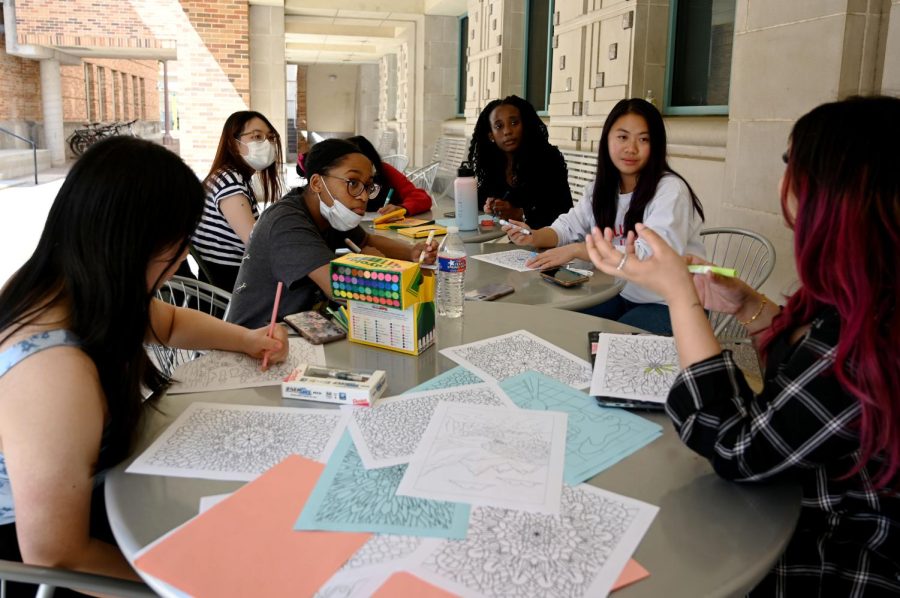UT launches Longhorn SHARE, peer-led support groups addressing mental health issues
May 4, 2022
A new peer-led support group program at UT will help students address issues concerning imposter syndrome and mental health diagnoses or discuss navigating queer identities and first-generation college experiences.
The Longhorn SHARE program, currently undergoing in its pilot, offers weekly support groups, individual support and one-time group processing circles. Weekly SHARE communities are led by student support specialists in a non-clinical space, ranging from full semester programs to short term programs, according to project coordinator Adrian Lancaster. The programs are offered virtually or in-person and are either art or conversation-based. To participate, students can submit interest forms and attend open meetings at any time in the semester. The free-flowing conversations allow for participants to have space to share, Lancaster said.
“All the topics were picked based on (support specialists’) own lived experiences so that they can relate to the students who would show up in those groups,” Lancaster said. “They got really excited about those and being able to kind of make spaces that they had wished existed on topics that … they feel like they’d still have room to grow in.”
Lancaster holds classes to train the student recruits, who will then lead groups the following semester. Public relations freshman Elyse Hopfe said she took Lancaster’s class this semester in preparation to host her own support group for students with ADHD in the fall.
“I wanted to … facilitate because I’ve definitely heard from the student population at UT that counseling and therapy wasn’t all for them, and I could see the need for something like peer support,” Hopfe said. “I’m really excited to host a topic I’m passionate about and better the lives of (myself) and other students with ADHD.”
One SHARE participant, who wishes to remain anonymous for privacy reasons, said she felt isolated in her graduate program, but the group helped her realize she wasn’t facing those difficulties alone. She said the group taught her how to manage negative self-talk, learn skills on maintaining a personal life and meet students outside of her discipline.
“Now I have more perspective in that all the struggles that I went through were not seldom experienced.” the graduate student said. “It can be hard to separate your value outside of your academic position. I learned how to have a little bit more self compassion and understanding of myself.”
The program is also introducing limited issue-specific share circles, addressing struggles and concerns such as imposter syndrome, Lancaster said. So far, the circles have been workshopped in electrical engineering and nursing classes.
“We’re trying to break into the sort of harder-to-reach areas where mental health isn’t talked about much and give (students) this experience of having a circle with people in their own communities and being able to connect with them,” Lancaster said.
SHARE groups aim to assist the existing college’s care counseling staff by acting as an additional referral source to students in need, Lancaster said. He said the pilot program hopes to double the cohort of support specialists next spring.
“You have to dive in headfirst and try it,” Hopfe said. “You’d be surprised what just sitting in a group in a room with other people that are like you could do for you, even once a week. For people wanting to become facilitators, you’d be surprised how good it feels to help other people and to help them connect.”











